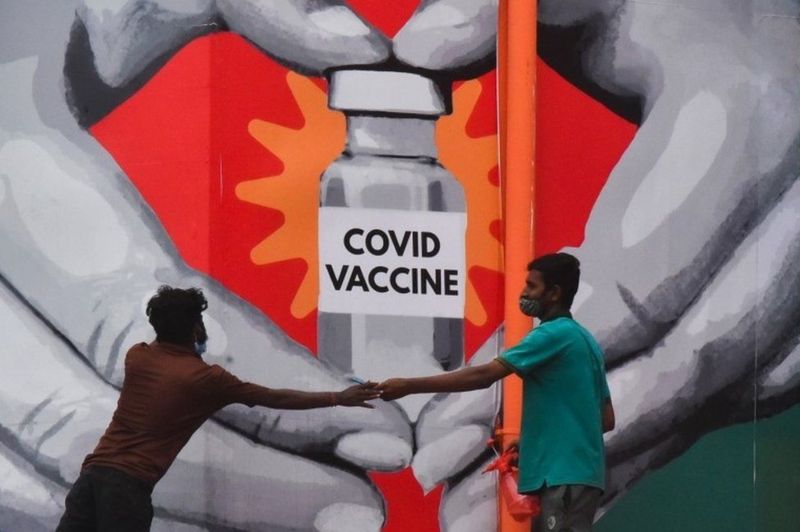India’s drug regulator approved the world’s first DNA vaccine against COVID-19 for emergency use.
According to a provisional study cited by the vaccine manufacturer Cadila Healthcare, vaccine ZyCoV-D of three doses prevented symptomatic disease in 66% of vaccinees,
Previous DNA vaccines have worked well in animals, but not in humans.
India has so far administered more than 570 million doses of three previously approved vaccines: Covishield, Covaxin, and Sputnik V.
Cadila Healthcare said it had conducted the largest clinical trial of the vaccine in India to date with 28,000 volunteers at more than 50 centers.
The third key phase of the clinical trials was carried out at the peak of the second deadly wave of the virus and this, according to its manufacturer, reaffirms the “efficacy of the vaccine against mutant strains”, especially the delta variant which is highly infectious .
But how does this vaccine work and what makes it different?
Information transfer
DNA and RNA are building blocks of life. They are molecules that carry genetic information that is transmitted from parents to children.
Like other vaccines, a DNA vaccine, once administered, teaches the body’s immune system to fight the real virus.
ZyCoV-D uses plasmids or small rings of DNA, which contain genetic information, to deliver the vaccine between two layers of the skin.
These plasmids carry information into cells to make the “spike protein” , which the virus uses to adhere to and enter human cells.
Most COVID-19 vaccines work by instructing the body to make a fragment of the spike protein to activate the immune system, causing the immune system to produce antibodies and teach itself to fight the virus.
No needle
This is the first human DNA vaccine against covid-19.
There are a number of DNA vaccines approved in the United States, for example, for use in animals, including a vaccine for an equine disease and another against skin cancer for dogs.
Currently, more than 160 different DNA vaccines are being tested in human clinical trials in the US.
Most are for the treatment of existing cancers and a third for the treatment of HIV.
ZyCov-D is also India’s first needle- free COVID-19 vaccine .
It is given with a disposable needleless injector, which uses a thin stream of the liquid to penetrate the skin and deliver the vaccine to the appropriate tissue.
Advantage
Scientists say that DNA vaccines are relatively cheap, safe, and stable.
They can also be stored at higher temperatures (-2 to 8 ° C).
Cadila Healthcare states that its vaccine showed “good stability” at 25 ° C for at least three months; this would help the vaccine to be easily transported and stored.
Disadvantages
DNA vaccines developed for infectious diseases in humans have failed in the past.
“The problem is that they work well in animals. But they do not end up offering the same level of protection in the immune response in humans,” said Gagandeep Kang, a virologist and the first Indian woman to be elected as a member of the Royal Society of London.
The challenge, he says, was how to get plasmid DNA into the human cell to give it a lasting immune response.
Jeremy Kamil, a virologist at the Louisiana State University Health Sciences Center in Shreveport, USA, shares his vision.
“Plasmid DNA vaccines have been tested in the past. But we know that it is very difficult to get plasmid DNA into the nucleus of human cells, especially in adults,” Kamil said.
MRNA vaccines, which use messenger RNA, a molecule to make proteins, like Pfizer or Moderna, do not need to reach the nucleus of the cell to be effective and offer greater efficacy and are likely to produce longer-lasting immunity.
The other potential drawback is that ZyCoV-D requires three doses , rather than two. The manufacturer of the vaccine says it is evaluating the possibility of offering two doses.
“I would love for a vaccine company to overcome the immense challenges to make it work. But it is imperative that the efficacy data is independently examined,” concluded Kamil.

